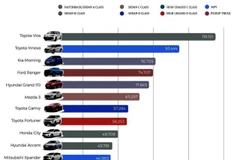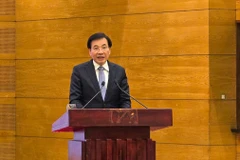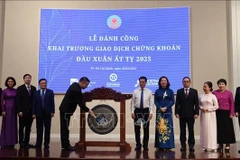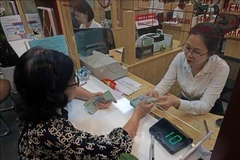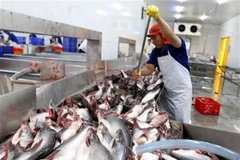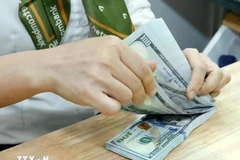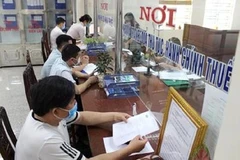Nguyen Duc Lenh, deputy director of the SBV’s HCM City branch, said the creditflow would be directed to priority sectors while credit quality would also beimproved.
Priority fields include agriculture, rural areas, exports, small andmedium-sized enterprises, supporting industries, high-tech enterprises, andothers.
Credit institutions must also ensure stable liquidity, safe banking operations,and strictly control credit from potentially risky areas, according to Lenh.
Credit growth in the city has focused on production and business to supporteconomic recovery, accounting for 60-70% of the total outstanding loans, said Lenh.
Last December, the SBV lifted the credit growth target by 1.5-2 percentagepoints for 2022 from its earlier target of 14%, allowing lenders to lend anadditional 240 trillion VND (9.7 billion USD).
Interest rates remain high
Economist Le Xuan Nghia, a member of the National Financial and Monetary PolicyAdvisory Council, said interest rates are still too high, despite the centralbank calling on banks to cut lending rates to support enterprises.
Deposit interest rates at banks have surged to as much as 12% per year, pushinglending interest rates up to 15-16% a year, he said.
If the inflation rate is around 4%, the savings interest rates shouldbe around 6-7% per year, he added.
Experts have predicted the deposit interest rate will remain high at leastuntil June and that deposit rates would peak in the first half of 2023 with anincrease of 1-1.5 percentage points.
Recently, the Vietnam Banks Association called on commercial banks to keepdeposit interest rates at 9.5% or below to reduce lending interest rates.
Commercial banks started lowering deposit interest rates early this month andcut further last week, raising hope of a drop in lending rates.
SBV Governor Nguyen Thi Hong has constantly called on banks to cut operatingcosts and improve administrative procedures so as to reduce lending interestrates.
Expert Can Van Luc said enterprises should look to other capital mobilisationchannels instead of relying too much on bank loans./.






